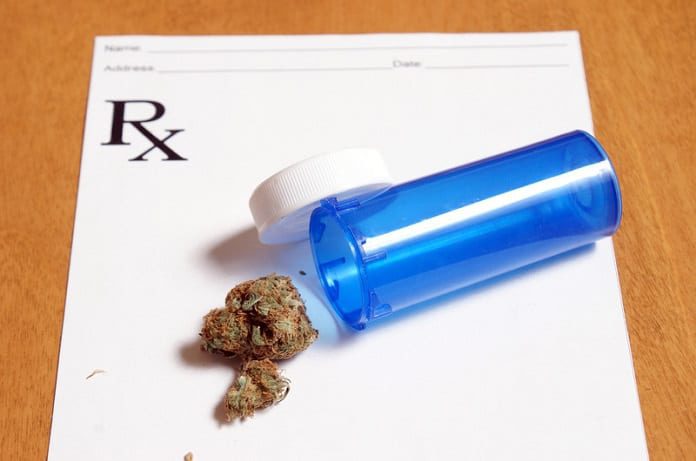Within the health community, the use of medical marijuana is controversial. Recently, a German-Israeli research team found evidence that small, controlled amounts of the active ingredient in marijuana, THC, improved cognitive function and memory in older mice.
Dementia is a general term used to describe cognitive decline in older people caused by damage to the brain. The most common cause of dementia is Alzheimer’s disease but it can also result from strokes or other illnesses. Individuals with dementia often experience memory loss as well as difficulty thinking and using language. Other symptoms include aggression, insomnia, depression, and hallucinations. Since dementia impedes a person’s ability to perform everyday activities, researchers have long been looking for ways to slow its progression.
Some researchers have been investigating cannabinoids as a possible chemical guard against cognitive deterioration. Cannabinoids are a class of compounds which affect how our brain cells communicate with one another. Our bodies naturally produce cannabinoids which attach to special receptors that are part of the endocannabinoid system. The endocannabinoid system helps regulate a range of functions including memory and thinking.
Previous research has found some evidence that the endocannabinoid system plays a role in modulating the physiological processes underlying aging. It is believed that as we age, our bodies produce fewer cannabinoids, the ability of the endocannabinoid system to do its job declines, and the brain ages.
Cannabinoids such as delta-9-tetrahydrocannabinol (THC) imitate the effects of the cannabinoids our bodies produce. THC is the most powerful of marijuana’s 60 cannabinoids. While some experts advocate for the use of medical marijuana, others raise concerns regarding its addictive properties and possible long-term side effects. For example, marijuana can impair the developing adolescent brain. But how does it affect older brains?
A German-Israeli research team utilized a mouse model to explore the link between the cannabinoid receptors and the symptoms associated with aging. Their results were recently published in Nature Medicine. Over a period of 4 weeks, they tested the effect of low-dose THC on learning, spatial skills, and memory in young mice (2 months old), mature mice (12 months old), and old mice (18 months of age). While humans often report cognitive impairment after marijuana use, the controlled doses of THC given to the mice were too small to flood their endocannabinoid system and make them feel high (3 milligrams of THC per day for every kilogram of bodyweight delivered using tiny pumps). Mice of the same ages received a placebo. The mice were given tasks to perform such as locating an object and recognizing other mice.
Administering THC notably impacted both groups. The performance of the young mice dramatically declined, while the older mice improved so much that their learning and memory matched those of young, untreated mice. The benefits of the drug in old mice lasted for weeks after THC treatment was stopped.
The researchers also examined the brain tissue and gene expression in the mice. Mice treated with THC had an increased number of links between nerve cells, which promotes the ability to learn.
They reported that “the expression profiles of the THC-treated mice aged 12 months closely resembled those of THC-free animals aged 2 months” as if the older mice’s brains were getting younger. In addition, they found that a mouse’s brain aged much faster when it lacked functional receptors for THC.
More research is needed to fully understand the underlying mechanisms of THC and the endocannabinoid system. Nonetheless, these researchers suggest that THC treatment may be a potential strategy to slow, or even reverse cognitive decline in the elderly. Further human subject trials will be needed to determine if THC is safe, effective, and identify possible side effects. A small study to assess the effects of incorporating cannabinoids to the pharmacotherapy of dementia patients in their 60’s is planned for later this year.
Written By: Debra A. Kellen, PhD



